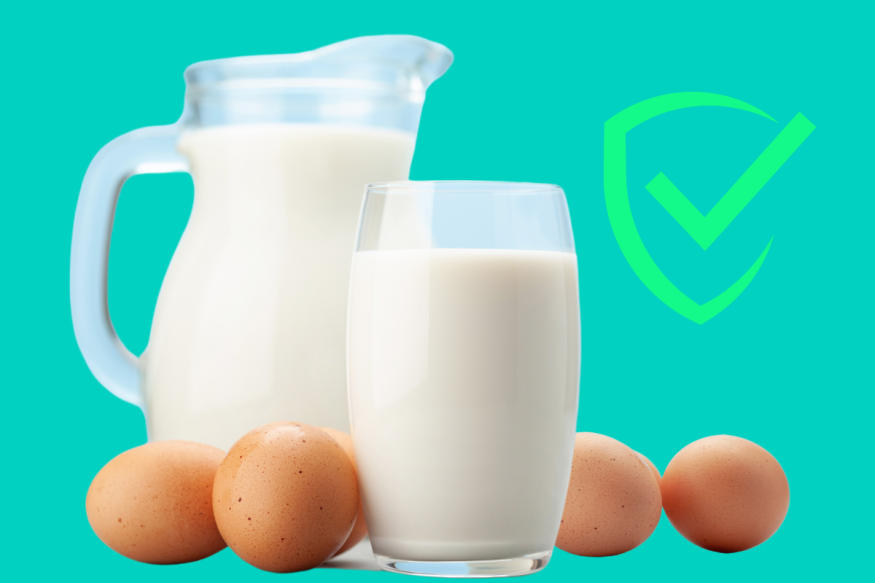
Is the recent bird flu outbreak affecting your milk and eggs? We're breaking down the latest developments to answer your top food safety concerns.
Bird Flu Spreads to Dairy Cows in the U.S.
A recent outbreak of highly pathogenic avian influenza (H5N1), commonly known as bird flu, has impacted more than two dozen dairy herds across eight states - Idaho, Kansas, Michigan, New Mexico, North Carolina, Ohio, Texas, and South Dakota. This raises concerns for consumers about the safety of milk and eggs. So far, health officials have said that eggs and milk in the U.S. are safe to consume and that the risk to the public is low.
What's Important
Millions of chickens affected: On April 2, Cal-Maine Foods, the largest egg producer in the United States, temporarily stopped operations when it found bird flu in its population. It was forced to cull 1.6 million hens in addition to 337,000 young hens due to the spread.
First in Cattle: This is the first recorded instance of H5N1 infecting dairy cows. Only dairy cows, not beef cattle, have been infected.
How It Was Transmitted: Agriculture officials believe the infection spread to cows from exposure to wild birds, but haven't ruled out cow-to-cow spreading of the disease.
Restrictions Implemented: Imports of dairy cattle from states where the virus has been detected have been restricted in 17 states.
Low Public Risk: Health officials emphasize minimal risk to consumers as the virus strain hasn't mutated for human-to-human transmission.
Bird Flu and Food Production
Milk Safety: Pasteurization, a heat treatment process, effectively eliminates H5N1 from milk, ensuring the safety of commercially available milk.
Raw Milk Caution: The FDA advises against consuming raw milk, especially from potentially exposed cows, due to limited research on H5N1 transmission in this context.
Egg Safety: Thoroughly cooked eggs remain safe for consumption. The largest egg producer in the US has addressed bird flu in its flocks and confirms no contaminated eggs reached the market.
Limited Milk Production Impact: While some states restrict cattle imports from affected areas, the overall impact on milk production appears minimal.
How Bird Flu Affects Dairy Farms
Symptoms: Infected cows exhibit a sharp decline in milk production and lethargy.
Biosecurity Measures: Farms separate sick cows and test them for H5N1. Animals typically recover within two weeks.
Bird Flu and Human Cases
Rare Cases: Only two human infections have been reported in the US, both linked to close contact with infected birds, not through food consumption. Both individuals recovered quickly.
Recommendations:
Consume pasteurized milk only.
Avoid raw milk, especially if sourced from potentially exposed farms.
Cook eggs thoroughly before consumption.
H5N1 Remains an Emerging Situation:
Scientists are actively monitoring the evolving H5N1 strain, and further research is needed to understand potential transmission risks, particularly concerning raw milk.
© copyright 2024 Food World News, a property of HNGN Inc. All rights reserved. Use of this website constitutes acceptance of our terms and conditions of use and privacy policy.









